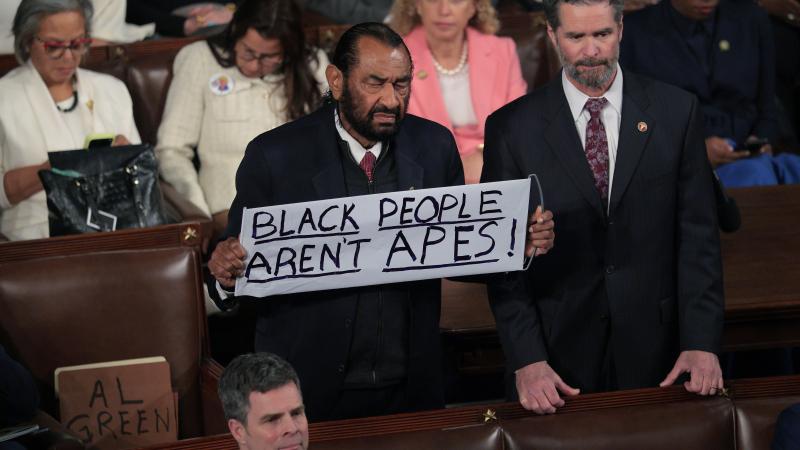Concerns about rail strike disruptions loom ahead of holiday season
Last week, the country’s third largest rail union rejected the ratification of a labor contract brokered by President Joe Biden’s administration.
After last year's record cargo year, the Port of Los Angeles has made significant progress in clearing backlogs spurred by the pandemic-induced supply chain crunch. But concerns now loom among officials about possible disruptions stemming from a potential rail strike leading up to the holiday season.
The Port of Los Angeles saw cargo volume recede last month – a stark contrast to last year, when September 2021 ranked as the port’s busiest September on record. Port Executive Director Gene Seroka told reporters Wednesday that the port saw a 21% drop in the amount of cargo handled this September compared to the same time last year.
Seroka also shared that the port’s ship backlog has “receded dramatically” – an aspect that captured nationwide attention last fall and stoked concerns about the state of the global supply chain.
The port director noted several reasons for the pullback of cargo. For one, many holiday goods already arrived over the summer, reducing the volume of holiday cargo the port would typically be processing in the fall. Additionally, Seroka said ongoing dockworker labor negotiations on the West Coast and growing concern about the economy has resulted in a cargo cool-down.
“Record high inflation, fuel costs, interest rates and other uncertainties are making Americans cautious, which could impact discretionary spending,” Seroka said. “The upside – consumer hesitancy and abundant retailer inventories could lead to merchandise markdowns ahead of the holiday season.”
Despite progress made at the nation’s busiest port, concerns linger among officials about the impact a potential rail strike next month could have on cargo movement.
Last week, the country’s third largest rail union rejected the ratification of a labor contract brokered by President Joe Biden’s administration. A strike could occur as soon as Nov. 19 if a deal is not reached, stoking concerns about disruptions right before the holidays.
Jay Timmons, CEO of the National Association of Manufacturers, said Wednesday that manufacturers are “facing down disruption and delays” in domestic and international supply chains. He said the supply chain dysfunctions have impacted the cost of raw materials and increased transportation and logistics costs.
Timmons said one of the main issues that is slowing down the domestic supply chain is “labor uncertainty that is tied to critical infrastructure,” noting the potential rail strike that could start in November.
“The uncertainty that surrounds these potential disruptions, honestly, can wreak havoc on operations and logistics planning, especially in the lead up to the holiday shipping season,” Timmons said during Wednesday’s briefing. “Even if there's a deal reached by the November deadline, rail carriers are going to have to preemptively start shutting down service to certain products and bulk freight as well seven to 10 days before the deadline, just in case there might be a possible strike.”
The potential service shutdowns “are the kinds of disruptions that cause delayed shipments and additional shipping supply chain upheaval,” Timmons added.
Seroka said at the Port of Los Angeles there is still work to be done on the rail side, noting that importers need to pick up boxes at inland rail facilities faster to get cargo moving quicker.
When asked about whether the prospect of a rail strike last month led to disruptions, Seroka said the port made it through the uncertain period "pretty well." He noted, however, that there were impacts across supply chains, but "as a supply chain, we minimized what could have been...a massive economic and service disruption."















